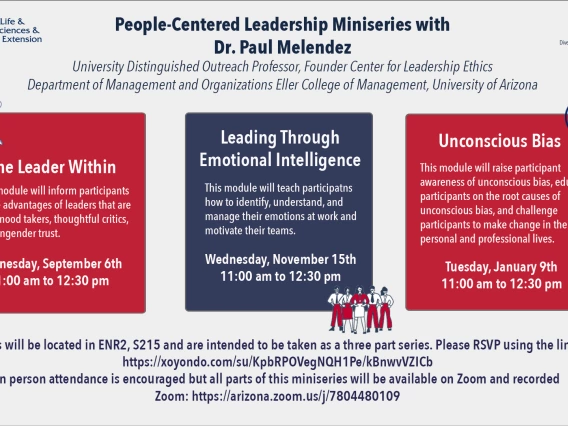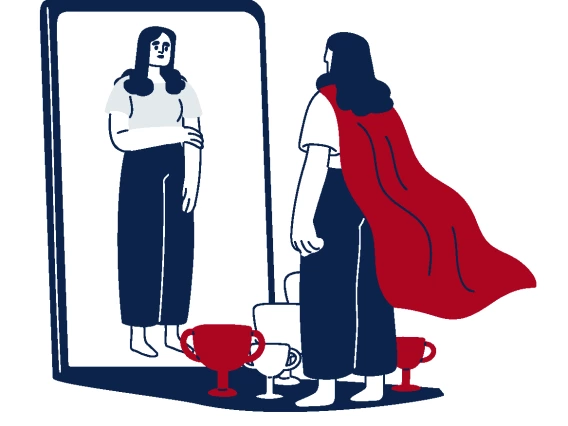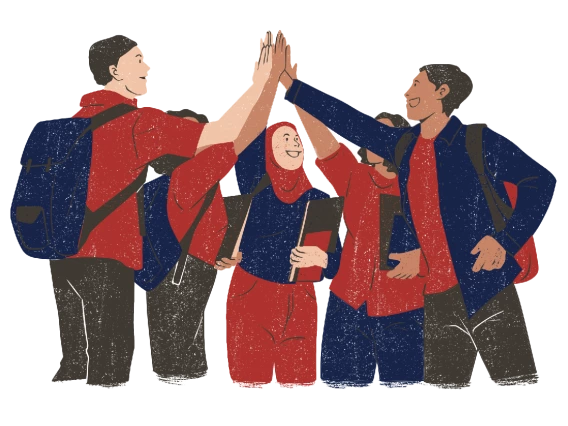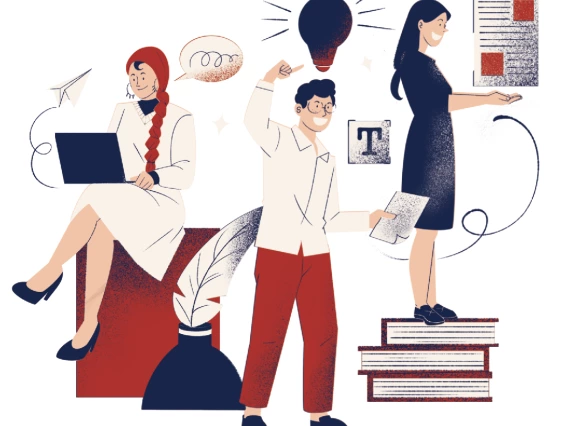
Distinguished Outreach Professor, Dr. Paul Melendez facilitates a 3-part series that explores dimensions of interpersonal leadership: The Leader Within, Leading with Emotional Intelligence, and Unconscious Bias. The series invests in each of us becoming leaders, whatever our title, and creating a high performing, inclusive, and supportive organization.

So is it really imposter syndrome or is it a systemic issue? with Dr. Treya Allen
Outcome objectives:
- Break down imposter syndrome and the mislabeling that occurs when you encounter feelings, spaces, and humans that suggest they do not belong.
- Tackle how mislabeling prevents us from taking a critical eye to the structures (policies, practices, and procedures) that create environments that do not promote belonging.

Leading through Ethical Decision making with Dr. Paul Melendez
Paul Melendez serves as a University Distinguished Outreach Professor and Founder of the Center for Leadership Ethics in the Eller College of Management. Paul will share his objective model of analysis to assist leaders with ethical decision-making using his case-based approach. In this session participants will learn theoretical and practical ways to approach ethical and moral dilemmas in organizational life.
Outcome objectives:
- Examine the root causes of unethical behavior.
- Discover strategies for building trust.
- Apply an ethical decision-making model.

Creating Kind Communities with Dr. Jeannette Maré
Jeannette Maré, founder of Ben’s Bells Project and Director of the UArizona Science of Kindness Community Collective, will lead an interactive exploration of the challenges and opportunities we encounter in every interaction as we strive to create closer relationships and kinder communities. Jeannette will discuss the emerging body of research on the science of kindness and inspire and equip participants to incorporate the life-changing practice of kindness into their daily lives.
Outcome objectives:
- Identify three key determinants of kind behavior.
- Describe individual and community barriers to enacting kind behaviors.
-
Create a plan for engaging in an intentional kindness practice.

Leading for Inclusion with Dr. Katina Sawyer
This session will communicate the basics of DEI to leaders, with a focus on the actionable steps that they can take to cultivate teams where employees feel like they belong and are able to unlock their full potential. More specifically, the session focuses on three levels of inclusion that leaders can enact at work. First, we will discuss the actions needed to enhance leaders' personal knowledge of, and comfort level with, DEI. Second, we will discuss how to build more inclusive work relationships that enhance employees' feelings of safety and connectedness. Third, we will discuss how to examine people-related processes, like recruitment, selection, and promotion, to ensure that employees' talents and skills are being consistently and appropriately recognized and rewarded.
Outcome objectives:
- Learn the three levels of leader inclusion and engage in action-planning so that each leader leaves with a roadmap of next steps for improving their inclusive leadership.
- Increase participants' ability to lead diverse teams and give them tools and strategies for improving their team culture.
- Question and answer session to enhance participant learning.

